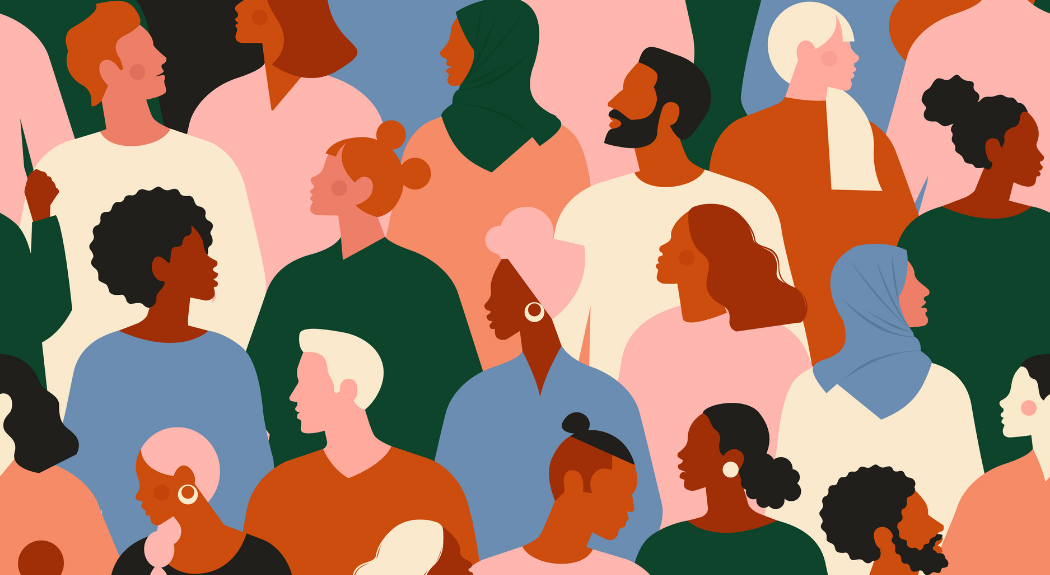Over the past few months, many people are talking about race relations in America. Those conversations are hard at times, awkward and even uncomfortable. For those who experience prejudice and discrimination based on religion, race or gender identity, the effect on your mental health can be devastating and long lasting.
The day after the assassination of Dr. Martin Luther King Jr., Jane Elliott conducted her now famous “blue eyes, brown eyes” exercise with her third grade class. She separated the class into two groups based on eye color. She told one group that they were superior and had special privileges. Meanwhile, she told the other group they were inferior and didn’t give the same praise and privileges as the superior group. Eventually, the kids who were ‘superior’ soared in confidence and felt they were smarter. The kids in the ‘inferior’ group, on the other hand, started making mistakes that they would not normally make, became timid and were angry.
This experiment only lasted for a couple of days.
Now, imagine if every day of your life felt like Mrs. Elliott’s third grade classroom. And, imagine you are always in the inferior group. Even if no one ever overtly says you are inferior. When people experience prejudice, they may feel that they are not wanted or don’t belong. This causes feelings of mal adjustment that takes a dangerous toll on mental health.
Ways experiences of prejudice can affect your mental health
Depression
If you are constantly in an environment where you are experiencing prejudice, it’s normal to experience feelings of depression. You may start feeling emotionally drained, isolated or lonely. You may also start feeling physical exhaustion, leading to fatigue or insomnia or feelings of low motivation and feelings of wanting to quit.
Anxiety
If you are feeling judged, whether at work, school or in the community, this can lead to feelings of generalized or social anxiety. For example, you may feel nervous about starting projects or taking risks around others in their daily environment. You may also experience worry about what other people think. This can then lead to negative self-talk and low sense of self.
Low self-worth
You may question your own worth. For example, you might wonder, “Am I good enough?” or, “Do I even belong here?” Questions like this lead you to start questioning your own value. You will wonder what will you have to do to be treated differently because nothing will ever appear to be good enough. You may feel the effects of imposter syndrome and start to question your own intelligence, your value and your skill level as a result.
Feelings of hopelessness
You may start to wonder, “Will things ever get better?” or you may start to feel like all hope is lost for change. At this point, you may begin to internalize feelings of being in an inferior group. Then, you may stop demanding for things to change, stop using your voice and accept negative treatment because of a lack of equality.
How you can overcome the effects of prejudice
We have to pay attention to our internal selves and listen to our mind and bodies. Then, we can start to take care of ourselves.
Self-care
You can’t pour from an empty cup. Before you can take care of anyone else, you have to take care of yourself first. Take a step back from the TV and social media. Engage in a hobby that you enjoy or spend time with your loved ones.
Breathe
Take time during the day to just breathe. Set breathing interval times throughout the day so you can remember to clear your mind. Relax your body and decrease stimulation that can feel overwhelming.
Positive self-talk
Use daily positive self-talk to help increase your self-esteem and self-worth. Tell yourself that you are good enough and you deserve the best from any position that you are in. By reminding yourself that you are worth it, you will believe that you belong when others may want you to believe otherwise.
Increase self-awareness
Know that you are not the problem. Understand that prejudice exists on many levels in society. When people are able to acknowledge that a greater issue exists, then they can increase self-confidence and be a voice for positive change.
The impact of prejudice can be devastating to a person’s mental health. The repercussions can last a lifetime and those feelings can be passed through generations. It is important for all people to continue to have those uncomfortable, difficult conversations about prejudice in society. When we take the time to listen to each other, we will feel like we are making a change. And when there is change, we will notice a positive effect in mental health based on inclusion and equality.
 Jennifer Williams, MA, LPC, LCPC, is a mental health professional at Anne Arundel Medical Group (AAMG) Mental Health Specialists, located in Annapolis. To reach her, call 410-573-9000.
Jennifer Williams, MA, LPC, LCPC, is a mental health professional at Anne Arundel Medical Group (AAMG) Mental Health Specialists, located in Annapolis. To reach her, call 410-573-9000.




